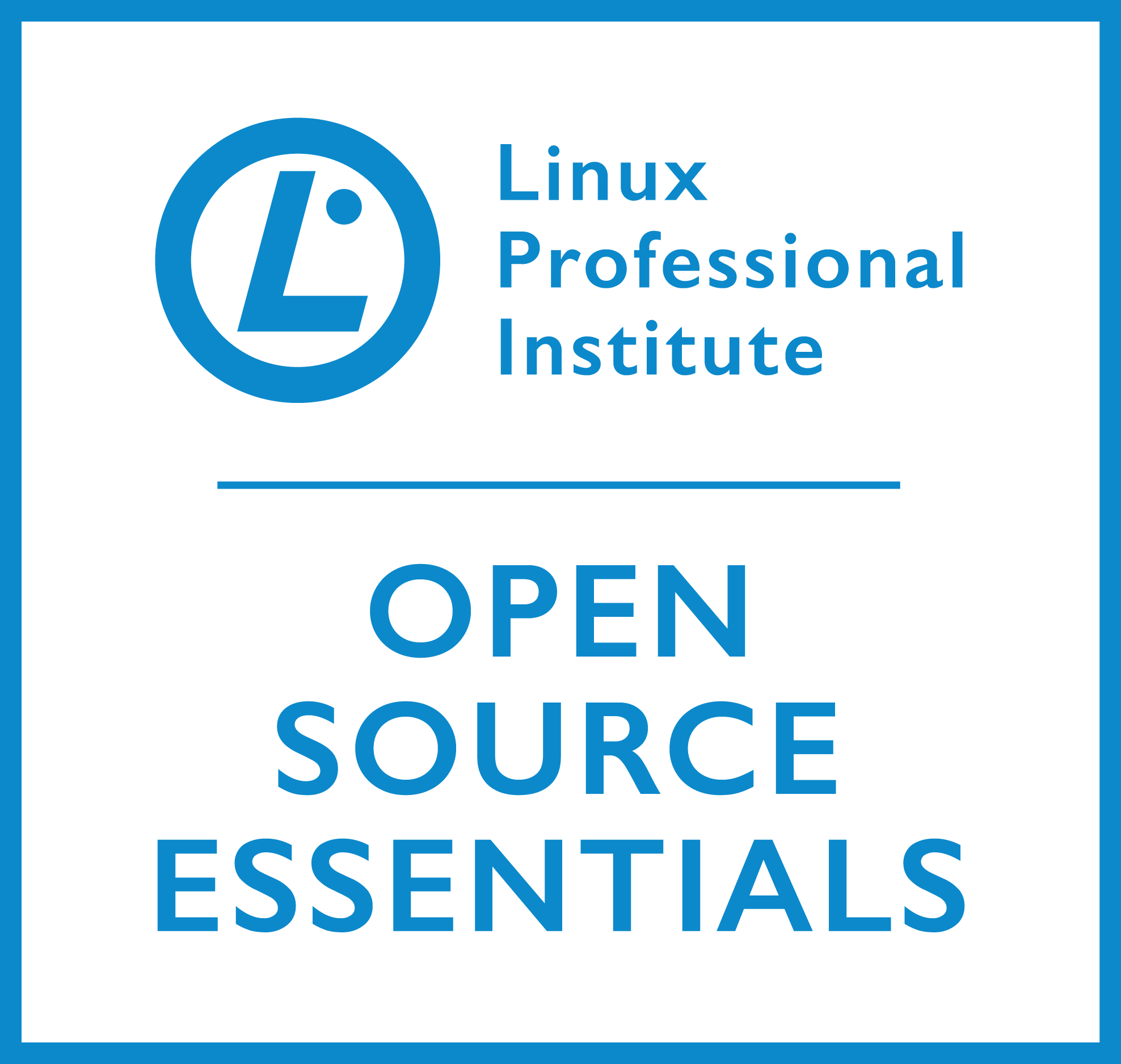050-100

| Formats: | Asynchronous |
| Blended | |
| Online | |
| Onsite | |
| Part-time | |
| Level: | Beginner |
| Prerequisites: | |
| Recommended Knowledge | |
| Basic familiarity with computers and software usage. | |
| An interest in open source concepts. | |
Formats: We offer our training content in a flexible format to suit your needs. Contact Us if you wish to know if we can accommodate your unique requirements.
Level: We are happy to customize course content to suit your skill level and learning goals. Contact us for a customized learning path.
Open Source Essentials (050-100)
The LPI Open Source Essentials certification, offered by the Linux Professional Institute (LPI), is an introductory, vendor-neutral credential that validates foundational knowledge of open source software and its ecosystem. This single-exam certification (exam code 050-100) is part of LPI’s Essentials track, designed to equip learners with an understanding of free and open source software (FOSS), its licensing models, community dynamics, and business applications. Ideal for those new to open source, this course covers the principles, tools, and strategies that drive the open source movement, providing a solid starting point for technical and non-technical professionals alike in today’s collaborative tech landscape.
Target Audience
This course is ideal for:
- Beginners exploring open source software and its applications.
- IT professionals seeking a broad understanding of FOSS principles.
- Business professionals interested in open source business models.
- Anyone preparing for the LPI Open Source Essentials certification exam (050-100).
Prerequisites
To succeed in this course, participants should have:
- Basic familiarity with computers and software usage.
- An interest in open source concepts (no prior technical experience required).
- Access to a computer for exploring open source tools and resources.
What You Will Learn
In this course, you will gain expertise in:
- Understanding the history, principles, and culture of open source software.
- Navigating open source licensing and compliance requirements.
- Exploring the technical foundations and tools of open source development.
- Applying open source strategies in business and community contexts.
Benefits of the Course
By completing this course, you will:
- Build a strong foundation in open source principles and practices.
- Earn a globally recognized certification to enhance your professional profile.
- Gain insights applicable to technical, legal, and business roles in open source.
- Develop confidence to engage with the open source community and ecosystem.
Course Outline
- Topic 1: Open Source Software
- History and Evolution of Open Source
- Principles and Definitions of Free and Open Source Software (FOSS)
- Common Open Source Tools and Technologies
- Benefits and Challenges of Open Source Adoption
- Topic 2: Open Source Licensing
- Basics of Software Licensing
- Key Open Source Licenses (e.g., GPL, MIT, Apache)
- License Compliance and Obligations
- Intellectual Property in Open Source
- Topic 3: Open Source Development
- Open Source Development Models and Workflows
- Collaboration Tools (e.g., Git, GitHub, GitLab)
- Community Roles and Contribution Processes
- Version Control and Code Review Basics
- Topic 4: Open Source in Business
- Business Models Leveraging Open Source
- Economic Advantages and Cost Considerations
- Case Studies of Open Source in Industry
- Strategies for Integrating Open Source in Organizations
- Topic 5: Open Source Communities
- Structure and Dynamics of Open Source Communities
- Participation and Contribution Opportunities
- Communication Channels and Etiquette
- Impact of Open Source on Innovation and Society
Please contact us for any queries via phone or our contact form. We will be happy to answer your questions.
Ferndale,
2194 South Africa
Tel: +2711-781 8014 (Johannesburg)
+2721-020-0111 (Cape Town)
ZA
Jumping Bean Contact Form!